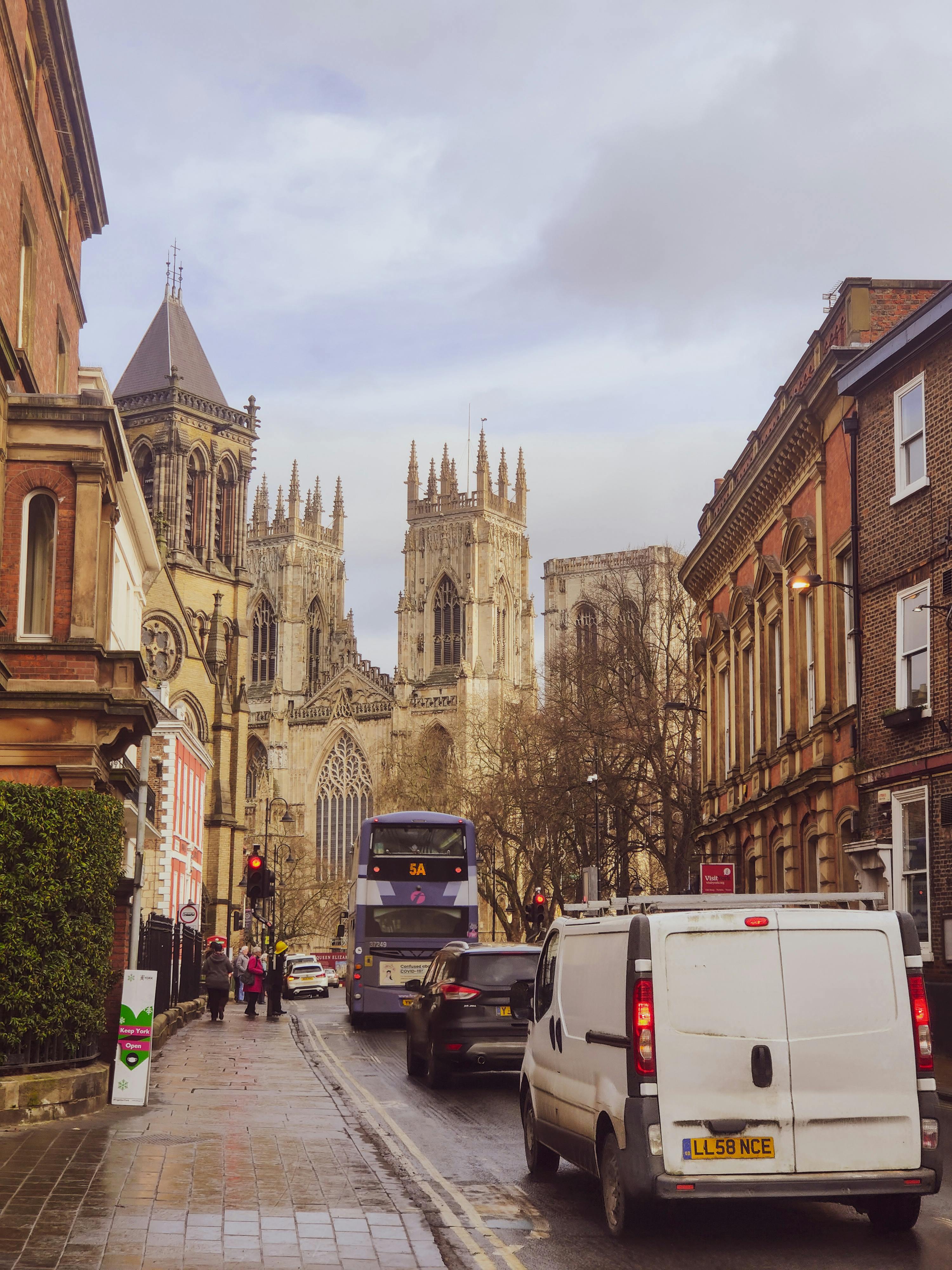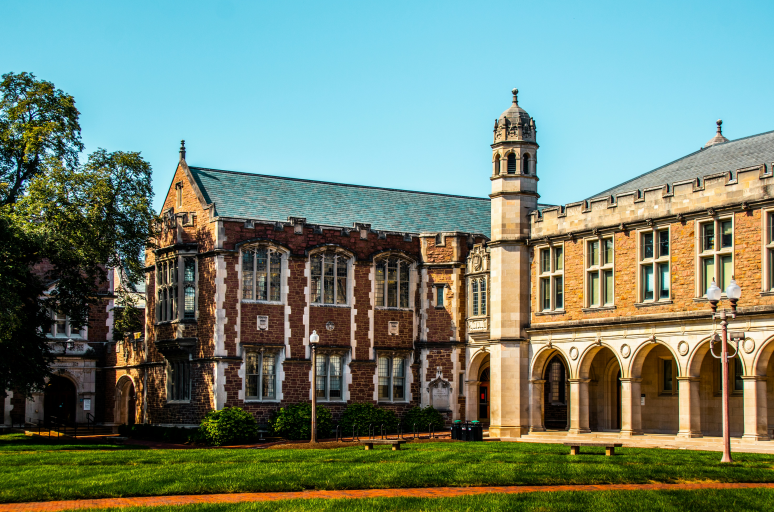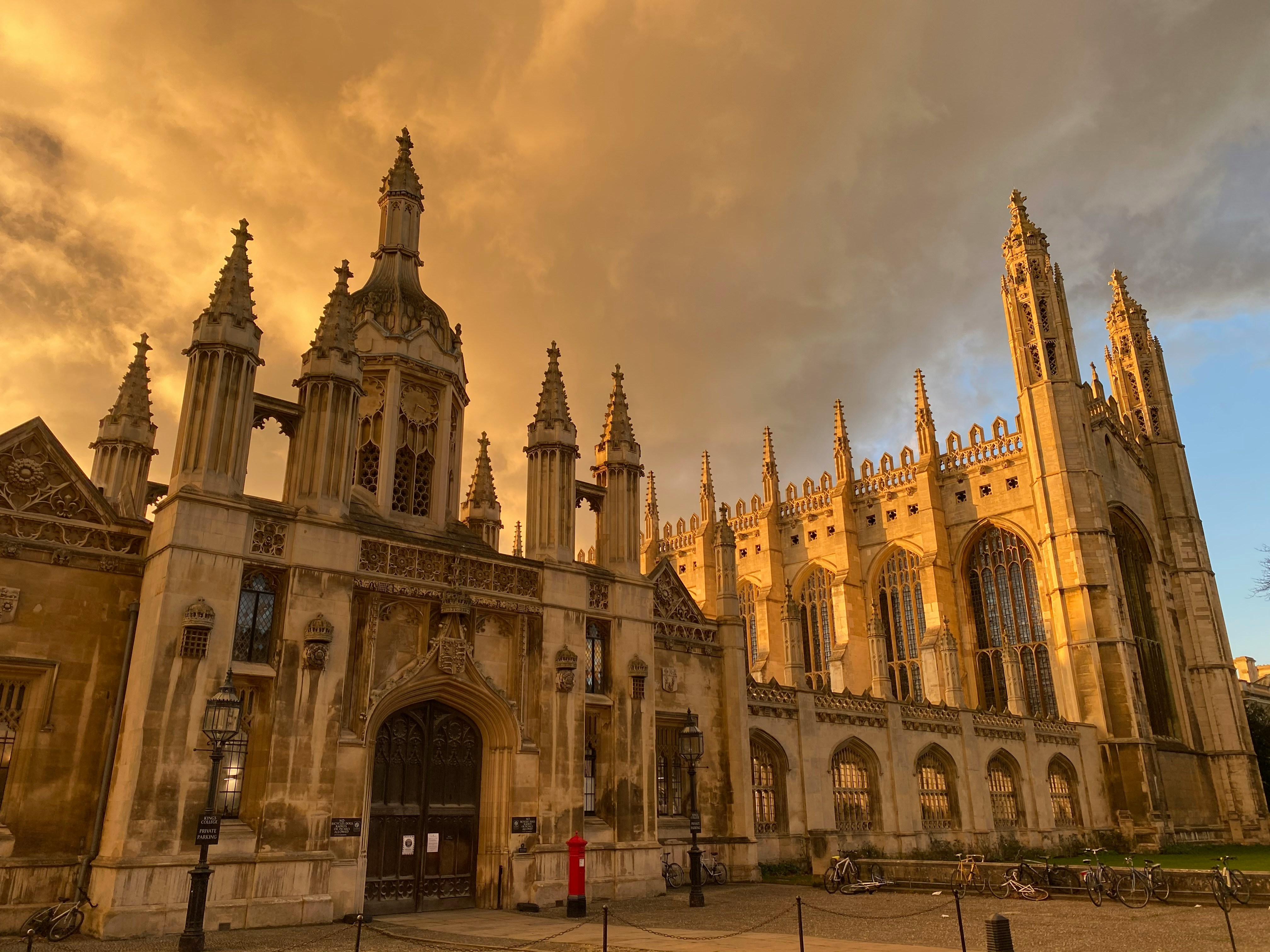Are you someone with strong personal political beliefs? And are you looking for the most conservative schools in America? In the US, many colleges have different political atmospheres. Some colleges tend to be more conservative, while others are more liberal. Making sure the one you pick aligns with your political views is very critical. In this blog, you will know what conservative colleges are, the most conservative colleges in the US, the characteristics of conservative schools, and the benefits and factors to consider when choosing a conservative college. Hope you can get some inspiration from here!
What is a Conservative College?
Conservative colleges in the US refer to those colleges with conservative values and political tendencies, which are embodied in their course arrangements, school culture, club activities, etc. They usually have long religious tradition roots and advocate their religious doctrines.
Characteristics of Most Conservative Colleges
There are over one hundred conservative colleges in America; while scattering in different places and vary differently, they also share something in common; here are the characteristics of those most conservative schools.
Geography: Usually located in conservative states like Texas, Florida, Tennessee, Utah, Oklahoma, and other states, these states hold strong conservative traditional values.
Core Values: Uphold Western culture and Christian morals and support republic partisan politically and culturally.
Course Arrangements: Emphasize the study of religious classics like the Bible and other great books on Western philosophy and history, and ban courses related to anti-Christian content.
Student Activities: Encourage students to carry out activities related to the rejection of abortion, carry guns, reject LGBTQ, etc.
Student Life: Have a strict code of conduct for students, limit students’ behavior rigidly, and oppose drugs, alcohol, and caffeine.
Conservative College vs Liberal College
Knowing the difference between Conservative College and Liberal College is crucial for you to make a better choice. Conservative colleges are those that have conservative values and are devoted to cultivating more conservative students or strengthening their conservative culture; conservative schools usually have a longer history background and have inextricable connections with religions.
Liberal College, on the other hand, is not conservative. Liberal College tend to have a more open environment and are more lenient to students’ personal lives and behaviors. They uphold core values like social progressivism and various social activities.
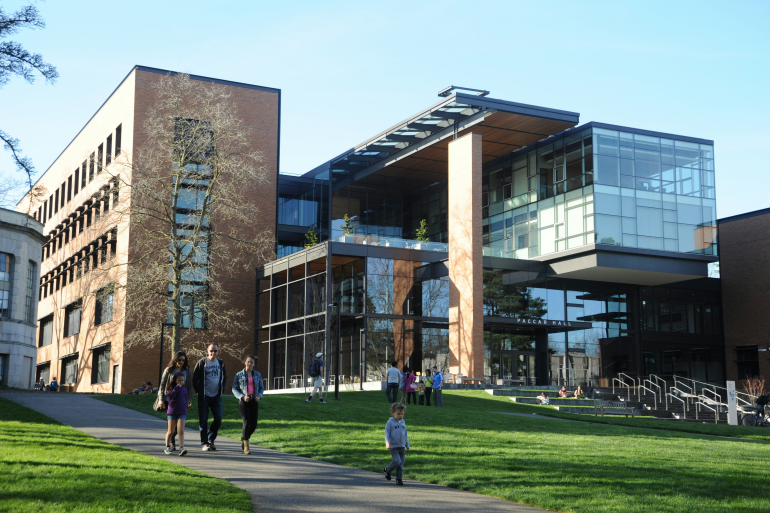
Top List of Most Conservative Colleges in the US
If you’re considering a conservative college but aren’t sure where to start, here’s some guidance. Below, we have listed 20 most conservative schools in the United States. By considering factors like the location, acceptance rate, enrollment, tuition, religious affiliation, etc. you will gain a deeper undestanding of conservative colleges. Let’s check it out!
1. Brigham Young University (Provo, Utah)
Enrollment: 31,642 undergraduate students
Acceptance Rate: 67%
Average Tuition: $6,120
Accreditation: Regional
Religious Affiliation: Latter-Day Saints
Owned and operated by The Church of Jesus Christ of Latter-day Saints (LDS Church), BYU is one of America’s most conservative colleges, known for its strict religious and behavioral standards, conservative values, and academic rigor. This conservative school bans premarital sex, alcohol, tobacco, coffee, and tea. Students of this college need to obey a rigorous dress code including no beards for men, modest clothing for women, and opposition to LGBTQ groups; this college also demands mandatory church attendance, and non-LDS students must attend weekly devotional services. And over 90% of faculty and students lean Republican.
2. Liberty University (Lynchburg, Virginia)
Enrollment: 47,696 undergraduate students
Acceptance Rate: 99%
Average Tuition: $22,713
Accreditation: National
Religious Affiliation: Evangelical Christian
Liberty University as one of the most conservative colleges, is the largest Christian university with explicit conservative activism founded by Jerry Falwell Sr., it enforces a strict Liberty Way honour code like no alcohol, no premarital sex. It has strong online programs, blends faith with conservative politics, hosts GOP leaders, and trains evangelical activists. Its campus culture is intensely patriotic, making it a top choice for students seeking a combative, faith-driven conservative education.
3. Cedarville University (Cedarville, Ohio)
Enrollment: 4,191 undergraduate students
Acceptance Rate: 65%
Average Tuition: $33,374
Accreditation: Regional
Religious Affiliation: Baptist
As a private Baptist university, Cedarville University has strict policies like prohibiting dancing and still restricting mix-gender gatherings, requiring mandatory chapel attendance, and teachings of biblical literalism. The university emphasizes mission, purity culture, and Southern Baptist doctrine. It’s one of the most conservative schools in America.
4. Utah State University (Logan, Utah)
Enrollment: 24,255 undergraduate students
Acceptance Rate: 94%
Average Tuition: $8,960 in-state, $24,080 out-of-state
Accreditation: Regional
Religious Affiliation: N/A
USU is a public research university known for its strong agriculture, engineering, and space research programs. As one of the most conservtive schools, this secular state school has the motto: Research, Service, Teaching. 60% of students in Utah State University are LDS (Mormon).
5. Palm Beach Atlantic University (West Palm Beach, Florida)
Enrollment: 2,837 undergraduate students
Acceptance Rate: 95%
Average Tuition: $34,134
Accreditation: Regional
Religious Affiliation: Interdenominational
As one of the most conservative colleges in the US, Palm Beach Atlantic University is a private interdenominational Christian university known for its conservative evangelical values. The university prohibits alcohol and drugs. With strong nursing, business, and ministry programs, PBA integrates faith into academics and emphasizes servant leadership. The campus culture blends beachside locations with a faith-focused, family-oriented atmosphere.
6. Biola University (La Mirada, California)
Enrollment: 3,596 undergraduate students
Acceptance Rate: 58%
Average Tuition: $44,382
Accreditation: Regional
Religious Affiliation: Denominational
This private evangelical Christian university is known for its conservative theological and social values. Rooted in Biblical inerrancy, Biola enforces a “statement of faith” for all faculty and students, prohibits LGBTQ+ relationships, and maintains strict conduct rules. Academically, it blends rigorous liberal arts with evangelical apologetics, offering strong programs in theology, cinema, and psychology—all taught from a conservative Christian worldview.
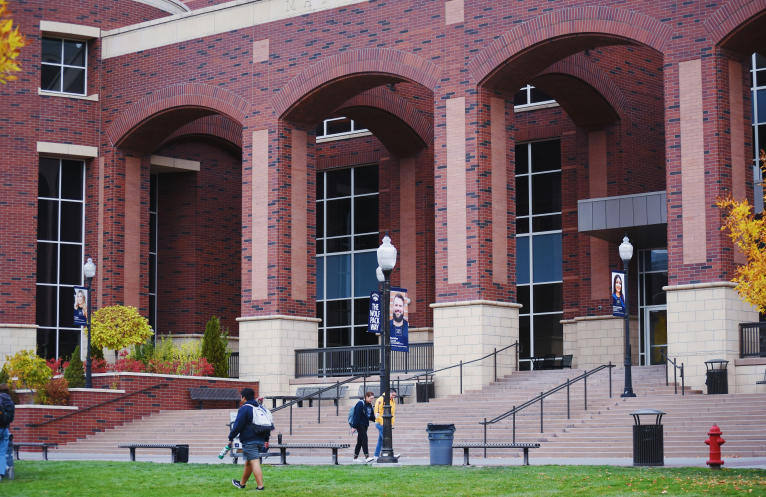
7. Samford University (Birmingham, Alabama)
Enrollment: 5,700 undergraduate and graduate students
Acceptance Rate: 83%
Average Tuition: $38,000
Accreditation: Regional
Religious Affiliation: Alabama Baptist Convention
Affiliated with the Alabama Baptist Convention, Samford University is one of American’s most conservative colleges, this school demands mandatory chapel attendance and Bible courses; prohibits premarital sex and LGBTQ + advocacy; bans alcohol or drugs; has a special dress code for students; and is strong in law, nursing and ministry. Ideal for Evangelical students wanting a reputable, faith-driven education in the South.
8. Grove City College (Grove City, Pennsylvania)
Enrollment: 2,500 undergraduate students
Acceptance Rate: 71%
Average Tuition: $20,490
Accreditation: Regional
Religious Affiliation: Reformed Protestant/Presbyterian
As one of the most conservative schools, Grove City College has strong Christian values. Because it’s Protestant-affiliated, this school has mandatory chapel attendance, and bans alcohol or drugs, has strong free-market economic programs, it is a college academically rigorous and deeply traditional.
9. Southern Methodist University (Dallas, Texas)
Enrollment: 12,000 undergraduate and graduate students
Acceptance Rate: 52%
Average Tuition: $64,460
Accreditation: Regional
Religious Affiliation: United Methodist
SMU has strong ties to the Methodist Church, a business-friendly curriculum (notably in its Cox School of Business), and a politically diverse but still right-leaning student body. While less rigid than evangelical schools, SMU fosters conservative values through its affiliation with the George W. Bush Presidential Center and traditional Greek life culture. Though officially non-denominational, it retains Christian influences, such as an optional chapel and faith-based student organizations, while allowing more ideological diversity than stricter religious colleges. It’s one of America’s most conservative colleges.
10. Lee University (Cleveland, Tennessee)
Enrollment: 5,300 undergraduate and graduate students.
Acceptance Rate: 73%
Average Tuition: $20,900
Accreditation: Regional
Religious Affiliation: Pentecostal denomination
As a private Christian university affiliated with the Church of God and known for its conservative evangelical values, the university is also one of the most conservative colleges in America, this school enforces a faith-based lifestyle code prohibiting alcohol, tobacco, and premarital sex while promoting chapel attendance and biblical integration across academics. Lee maintains traditional stances on gender roles and sexuality, aligns with evangelical teachings. Its conservative identity is reflected in strong ministry, music, and education programs.
11. Angelo State University (San Angelo, Texas)
Enrollment:10,500 undergraduate and graduate students
Acceptance Rate: 78%
Average Tuition: $8,500 in-state, $20,000 out-of-state
Accreditation: Regional
Religious Affiliation: N/A
It is a public university with a conservative-leaning culture reflective of its West Texas roots. While not explicitly faith-based, its student body and community lean right politically, with strong support for military or veteran programs, agriculture, and traditional values. The university fosters a patriotic, pro-law enforcement environment and hosts ROTC programs; the campus climate prioritizes Southern hospitality over progressive activism.
12. George Fox University (Newberg, Oregon)
Enrollment: 4,000 undergraduate and graduate students
Acceptance Rate: 92%
Average Tuition: $40,620
Accreditation: Regional
Religious Affiliation: Evangelical
A private Christian university affiliated with the evangelical Quaker tradition, it blends conservative theological values emphasizing social justice. The university enforces a “community lifestyle agreement” prohibiting alcohol, drugs, and premarital sex while upholding traditional Christian teachings on marriage and sexuality. Known for its strong programs in engineering, business, and ministry.
13. University of Mississippi (Oxford, Mississippi)
Enrollment: 21,000 undergraduate and graduate students
Acceptance Rate: 97%
Average Tuition: $9,000 in-state, $26,000 out-of-state
Accreditation: Regional
Religious Affiliation: N/A
University of Mississippi is a public university with deep Southern traditions and a conservative-leaning culture. As one of the most conservative colleges in the US, it’s known for strong Greek life, football fervour, and historical ties to the Old South, the campus leans politically right, with a majority Republican student body and vocal support for conservative causes. While academically diverse, Ole Miss retains traditional values, particularly in its business and law programs. The university has grappled with its Confederate past but remains a hub for Southern pride.
14. Anderson University (Anderson, South Carolina)
Enrollment: 3,500 undergraduate and graduate students
Acceptance Rate: 52%
Average Tuition: $32,000
Accreditation: Regional
Religious Affiliation: South Carolina Baptist
Anderson University as one of America’s most conservative colleges, is a private Christian university affiliated with the South Carolina Baptist Convention, known for its conservative evangelical values. The university prohibits alcohol, drugs, and premarital sex while upholding traditional biblical teachings on gender and sexuality. With strong ministry, business, and nursing programs, Anderson integrates faith into academics and campus life. Its Southern Baptist roots foster a right-leaning, family-oriented environment.
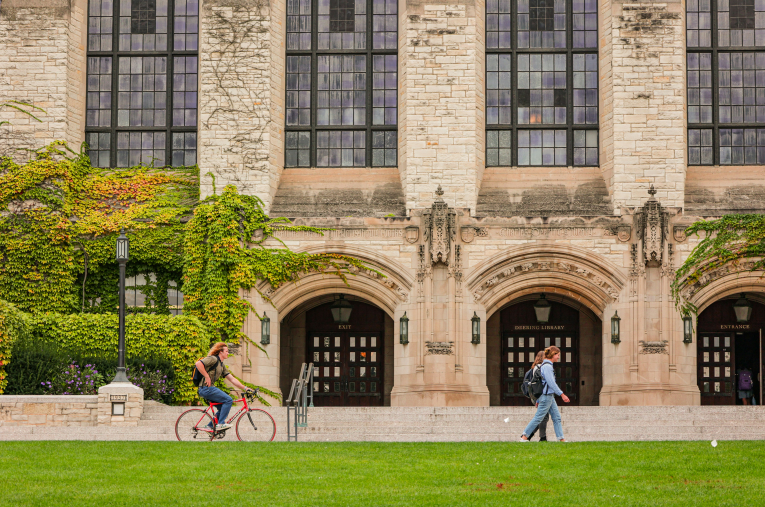
15. Oral Roberts University (Tulsa, Oklahoma)
Enrollment: 4,000 undergraduate and graduate students
Acceptance Rate: 99%
Average Tuition: $33,000
Accreditation: Regional
Religious Affiliation: Denominational
It’s a private charismatic Christian university known for its conservative Pentecostal values and emphasis on “whole-person” education (spirit, mind, and body). As one of the most conservative schools, this university enforces a strict honour code prohibiting stuff like alcohol while requiring chapel attendance and adherence to traditional biblical teachings. With strong theology, health sciences, and media programs, ORU blends academic rigour with faith-healing traditions and conservative political activism. The campus culture emphasizes evangelism, prosperity gospel teachings, and Republican-aligned values.
16. Maranatha Baptist University (Watertown, Wisconsin)
Enrollment: 1,000 undergraduate and graduate students
Acceptance Rate: 75%
Average Tuition: $18,000
Accreditation: Regional
Religious Affiliation: Denominational
Maranatha Baptist University is a private fundamentalist Baptist university known for its strict conservative and separatist values. As one of the most conservative schools, this college enforces a rigorous code of conduct, prohibiting alcohol, tobacco, dancing, and any form of entertainment deemed “worldly” while requiring chapel attendance and adherence to traditional gender roles. With an emphasis on Bible-based education, Maranatha offers ministry, education, and music programs, all taught from a literal interpretation of Scripture.
17. North Greenville University (Tigerville, South Carolina)
Enrollment: 2,100 undergraduate and graduate students
Acceptance Rate: 76%
Average Tuition: $23,000
Accreditation: Regional
Religious Affiliation: Denominational
North Greenville University is a private Baptist university is known for its conservative evangelical values and strong ties to the South Carolina Baptist Convention. As one of the most conservative schools, this university prohibits alcohol, etc., promoting traditional biblical teachings on gender and sexuality. With robust ministry, business, and education programs, NGU integrates faith into all academic disciplines and fosters a right-leaning campus culture. The university emphasizes missions, servant leadership, and Southern Baptist traditions.
18. University of Tennessee-Martin (Martin, Tennessee)
Enrollment: 7,000 undergraduate and graduate students
Acceptance Rate: 88%
Average Tuition: $10,000 in-state, $25,000 out-of-state
Accreditation: Regional
Religious Affiliation: Nondenominational
A public university with a culture reflecting its rural Southern roots. While not explicitly faith-based, the campus leans conservative, with a student body and community that generally supports traditional values, patriotism, and agricultural traditions. The university emphasizes ROTC programs, farming/agribusiness, and regional pride, though it maintains academic openness as part of the UT system. It has strong athletic traditions and a low-key, family-oriented atmosphere—ideal for students seeking a public university with a right-leaning tilt in small-town Tennessee.
19. Bob Jones University (Greenville, South Carolina)
Enrollment: 2,705 undergraduate students
Acceptance Rate: 89%
Average Tuition: $20,950
Accreditation: Regional
Religious Affiliation: Evangelical Christian
A private fundamentalist Christian university known for its ultra-conservative and separatist values. BJU’s curriculum is rooted in biblical literalism, with strong programs in ministry, education, and the arts, all taught from an uncompromising fundamentalist perspective. As one of the most conservative colleges in America, the campus culture is deeply traditional and bans interracial dating (officially rescinded in 2000 but retains a deeply traditional culture; it also has strict dress codes: skirts for women, no pants, and suits for men. No contemporary Christian music, only hymns or classical, prohibiting LGBTQ+ like other conservative colleges.
20. Campbell University (Buies Creek, North Carolina)
Enrollment: 6,500 undergraduate and graduate students
Acceptance Rate: 89%
Average Tuition: $40,000
Accreditation: Regional
Religious Affiliation: Denominational
A private Baptist-affiliated university known for its conservative Christian values and commitment to integrating faith with academics. The university upholds a statement of faith that discourages alcohol, drugs, and premarital sex. With strong law, health sciences, and divinity programs, Campbell attracts a predominantly conservative student body and fosters a family-oriented, service-driven campus culture.
What Can I Expect from Attending a Conservative College?
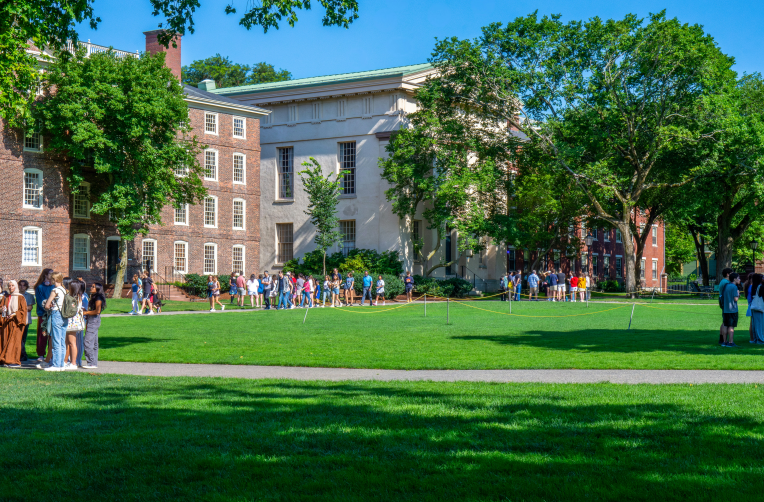
Strong community connections: conservative colleges often have a strong sense of community and camaraderie among students, faculty, and the staff. Colleges students adhere to a standard and shared belief system and alumni networks.
Alignment with Personal Values: conservative schools often prioritise traditional values, moral principles, and religious belief. Students who strongly identify with conservative ideologies, attending a conservative college can give them a sense of belonging.
High behaviour and moral expectations: conservative colleges are strict with students’ code of conduct; in these schools, you may have separate-sex student housing and have a healthier daily life and study environment.
Religion Study: if you have a personal religion, conservative colleges can meet your religious needs and educate students historically, philosophically and culturally.
Academic Environment: Conservative colleges have strong programs in ministry, business, law, nursing, and engineering. If you choose these, you may have a good educational environment.
Popular Majors in Conservative Colleges
Business, law, politics, etc. are popular majors in those most conservative schools. Conservative colleges offer not much different courses and programs as other colleges. They often emphasize traditional academic disciplines, value-based education, and fields that align with religious or conservative principles. Their popular majors include business, economics, and history, highlighting their conservative values. Many conservative colleges, such as Liberty University and Hillsdale College, have strong business programs emphasizing free-market principles, entrepreneurship, and ethical leadership. In the field of Political Science, conservative schools tend to focus on constitutional law, American political thought, and conservative policy. Conservative colleges also attach great importance to Theology or Biblical Studies. Their history study often with an emphasis on Western civilization and American history.
How to Choose the Most Conservative Schools?
Conservative Colleges, like other general colleges, aim to provide students with high-quality education and contribute to students’ personal development. However, when choosing conservative colleges in America, you may need to consider the following factors:
Religious affiliation: conservative colleges have a religion-based culture and strict doctrines; if you are not religious or your religion collides with theirs, you must think twice about choosing.
Lifestyle: conservative schools have rigorous rules and a code of conduct for students. If you live a loose life, these colleges are not recommended.
Political climate: Most conservative colleges have their political tendency; if you also have political tendencies, you need to consider whether they harmonize.
Tolerance for dissent: many conservative colleges oppose LGBQ+, abortion and some other social issues; if you are one of these social groups, you better make another wise choice.
Conclusion
In conclusion, attending those conservative colleges brings you a lot of benefits, especially for those who have religious affiliations and political leanings. However, the limited academic scope, lack of diversity, and exclusivity, along with limited career opportunities can also cause many problems for students. Whether you’re attending a conservative college or other colleges, it’s wise to think twice before making any decision.
FAQs
Brigham Young University(BYU) is the one mentioned the most. Located in Provo, Utah, in the western part of the United States, it was founded by a religious leader in 1875. it is the flagship university sponsored by the LDS Church and has one of the most conservative atmospheres in the US. Students in this college are strictly prohibited from drugs, alcohol, and profanity; students are required to receive the study of the Bible and Mormon Scripture.
Economics and Political Science are likely the most conservative academic fields. Especially when tied to institutions like Hillsdale, Georgia Mason, or Liberty University. They align with traditional values, religious teachings, or right-leaning political and economic ideologies.
Social Conservatism and Fiscal Conservatism (or Libertarian Conservatism) are Conservatism’s primary schools of thought. Social Conservatism, influenced by people like Edmund Burke, focuses on traditional social values and religions, moral order like family and marriage, and national identity like patriotism and immigration restrictions. People like Adam Smith influenced fiscal Conservatism, and its core beliefs are limited government, like free markets and low taxes, individual liberty, emphasis on economic policies, and government involvement in the market.
American universities are overwhelmingly more liberal than conservative regarding faculty ideology and campus culture. However, there are exceptions, especially religious schools, military academies, and a handful of other institutions that tend to be more conservative.
Conservatism is generally considered a right-wing ideology; it is often contrasted with liberalism.
The “most prestigious” field of study depends on cultural values and social influence, but traditionally, medicine, law, and theoretical physics sit at the pinnacle. They combine intellectual rigour, high-income potential and social respect.
Brigham Young University (BYU) is mentioned as the most conservative Christian college based on doctrinal strictness, political activism, and cultural traditionalism. However, people would think universities like Liberty University and Bob Jones University are also ranked in tier 1. They all have strong conservative values and adherence to biblical principles.
Generally, there are institutional accreditation and programmatic Accreditation. Institutional accreditation includes regional accreditation and national accreditation. Many conservative colleges in the US have regional accreditation. Still, very few, like Bob Jones University, only have national accreditation like ABHE, so think twice before making a choice. Good college accreditation guarantees academic recognition and eligibility to apply for state loans or FAFSA scholarships. Prioritizing those with regional accreditation and thinking twice about choosing those national accreditation colleges, programmatic accreditation is also essential for future employment.


